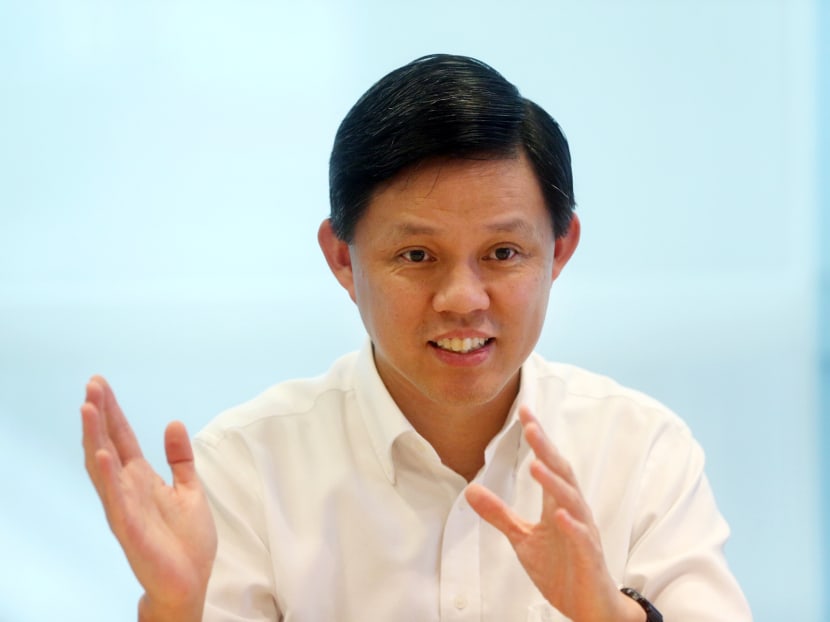Challenge is to ensure workers are ready for tomorrow’s jobs: NTUC chief
SINGAPORE — Despite the challenges that the workforce is facing in the midst of Singapore’s economic restructuring, there is still cause for optimism among job seekers, labour chief Chan Chun Sing said.

NTUC Secretary-General Chan Chun Sing sharing with the media how the Labour Movement is reinventing ourselves to go beyond the traditional suites of services to better serve the needs and aspiration of our changing workforce at a media briefing in the NTUC centre on 28 April, 2016. Photo: Ooi Boon Keong/TODAY
SINGAPORE — Despite the challenges that the workforce is facing in the midst of Singapore’s economic restructuring, there is still cause for optimism among job seekers, labour chief Chan Chun Sing said.
“We have far more jobs than the number of Singaporean workers. Sometimes, we have problems finding the correct workers to fit the job scope that (employers) need. Our challenge is to make sure that we continually upgrade our (workers’ skills) to be ready for not just today’s jobs, but tomorrow’s jobs,” the secretary-general of the National Trades Union Congress (NTUC) said.
Addressing about 1,600 guests, including union leaders and senior government officials at the annual NTUC May Day dinner in Orchid Country Club on Friday (April 29), Mr Chan pointed out that while the labour movement focuses on short-term cyclical challenges, the Government’s longer-term challenge is to ensure that Singapore does not experience structural unemployment.
To this end, he said that all tripartite parties — unions, employers and the Government — should work together to meet the “evolving needs of workers”.
Reiterating plans he had set out in a media interview on Thursday, Mr Chan said that there should be new business models to serve workers, including the growing number of professionals, managers and executives (PMEs), those working in small and medium enterprises, and freelancers and contract workers.
The labour movement will work closely with the Ministry of Manpower (MOM) to ensure that schemes such as the Career Support Programme and the Professional Conversion Programme will continue benefitting workers, he said.
NTUC will be reaching out to the growing number of freelancers here, to help with legal and financial advice. “We have the resources and we will step up the pace if need be, to make sure that all our workers can enjoy a good quality of life,” he added.
To help workers stay relevant, Mr Chan, who is also a Minister in the Prime Minister’s Office, urged tripartite partners to relook their partnerships in the coming years.
“When many people are talking about unemployment insurance, what we are most interested in is employment insurance: how to make sure that our workers continue to stay relevant and do not need unemployment insurance. That’s a better strategy than trying to fix the problem after,” he said.
To do this, the labour movement will put more resources into job counselling, grow a pool of full-time and part-time career coaches — the Employment and Employability Institute will work with MOM on this — and look at how to extend the working life of those beyond 60 years old.
It is important for union leaders to have the “correct attitude”, he said, adding that leaders who are prepared to face reality starkly but “never sugarcoat what to say and choose the easy way out” would push the labour movement forward.
For example, when the minimum wage was mooted, union leaders decided that it was not best-suited for the Singapore workforce. The labour movement then implemented the progressive wage model to benefit low-wage workers.
“The correct way to master resources and grow the tripartite relationship ultimately depends on a common set of values that we hold as labour movement leaders… values that always put the Singaporean workforce ahead of our own concerns,” he said.








